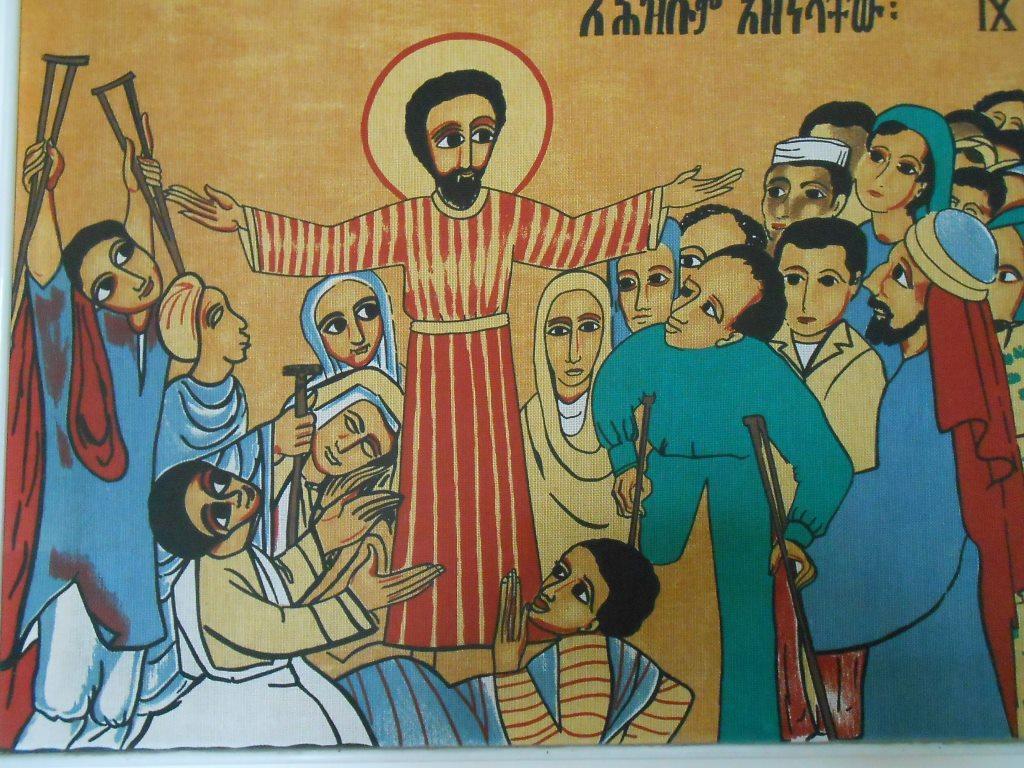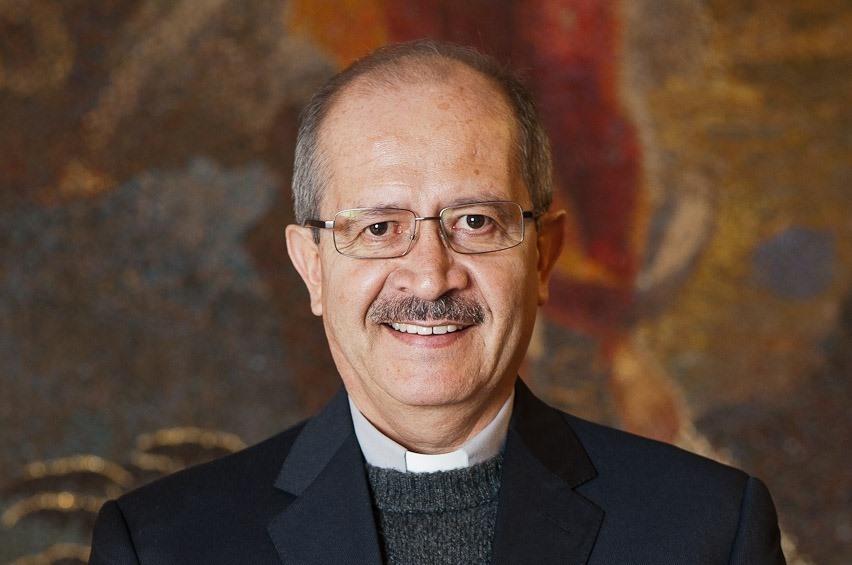Daniel Comboni
Comboni Missionaries
Institutional area
Other links
Newsletter
The magisterium of Pope Francis insists upon the vision of a ministerial Church by which is meant a fraternal Church that is steeped in the “odour of the sheep”, that is synodal, collaborative and one that witnesses to the joy of the Gospel by its proclamation, by its style of life and by service; a Church that embarks on a journey of conversion, overcoming clericalism and the pastoral criterion: “We have always done it this way” (EG 33). The XVIII General Chapter took up this directive of the universal Church and made it its own, in the hope of undertaking a journey of regeneration and requalification of our missionary commitment as regards ministeriality (CA ’15, 21-26; 44-46).
LETTER INTRODUCING THE YEAR OF STUDY
ON THE THEME OF MINISTERIALITY
“If you read my words, you will have some idea of the depths that I see in the mystery of Christ. This mystery that has now been revealed through the Spirit to his holy apostles and prophets was unknown to any men in past generations; it means that pagans now share the same inheritance, that they are parts of the same body, and that the same promise has been made to them, in Christ Jesus, through the Gospel. I have been made the servant of that Gospel by a gift of grace from God, who gave it to me by his power”
(Ep 3,4-7).
--- /// ---
“This is why…. He will have to think of himself as one unnoticed worker in a long line of workers, all of whom can only hope for results, not from their own personal work, but from the gathering together and continuation of efforts mysteriously guided and used by Providence”
(Writings 2889).
Dearest confreres, we send you greetings in this time of Christmas and wish you a Happy Beginning to the New Year 2020!
As is well known to us all, the apostolic exhortation Evangelii Gaudium has drawn attention to the historical changes of our time and the need for a profound renewal in the Church, so as to live the Gospel with joy and to be faithful to our proper vocation as missionary disciples of Jesus. With this renewed vision of the Church, there continually and increasingly emerges a Church that is “going out”, in which the mission is the paradigm of its being and doing, listening to the Spirit through the cry of suffering humanity, the cry of the poor and the cry of Creation. The magisterium of Pope Francis insists upon the vision of a ministerial Church by which is meant a fraternal Church that is steeped in the “odour of the sheep”, that is synodal, collaborative and one that witnesses to the joy of the Gospel by its proclamation, by its style of life and by service; a Church that embarks on a journey of conversion, overcoming clericalism and the pastoral criterion: “We have always done it this way” (EG 33).
The XVIII General Chapter took up this directive of the universal Church and made it its own, in the hope of undertaking a journey of regeneration and requalification of our missionary commitment as regards ministeriality (CA ’15, 21-26; 44-46). The Spirit calls us to dream and to be converted, as missionaries “going out”, who live the Gospel by sharing joy and mercy, cooperating in the growth of the Kingdom, first of all by listening to God, to Comboni and to humanity; a dream that is the dream of God, that leads us to dare, despite our littleness, and aware that we are not isolated but members of a ministerial Church. We are called to evangelise as a community, in communion and in collaboration with the whole Church, to promote for the sake of the poor the globalisation of fraternity and tenderness. All of this is concretised in a reduction and requalification of our commitments, developing specific pastoral services, going out towards human groups that are marginalised or in liminal situations.
To help us to grow during this journey, the Guide to the Implementation of the XVIII General Chapter set aside the year 2020 for reflection on the theme of ministeriality. We wish to propose that we engage in action-reflection, which means taking an approach that starts from experience, and reflects on its transformative potential and its critical points, so as to discern renewed courses of action.
This is what Comboni himself did: he conceived the Plan for the regeneration of Africa on the basis of his personal experience of the mission, of in-depth study and comparison with other experiences, discovering in the ministerial style the answer to the “impossible” challenge of the evangelisation of Africa. His Plan reflects a systemic understanding of the ministerial approach: a work that is collective and “universal”, that creates networks of collaboration to gather together all ecclesial resources, recognising the specific nature and originality of each individual; a work that gives life to a variety of services, in response to human and social needs, for which he scientifically prepares ad hoc ministries, and which results in the foundation of missionary communities that are sustainable from the point of view of ministeriality, socio-economy and social significance. As both Benedict XVI and Francis remind us, the Church grows by attraction and not by proselytism.
Our reflection on ministeriality, therefore, requires we listen to the Spirit, the driving force and protagonist of ministries in the missionary-disciple Church. We commit ourselves to deepening our understanding of this theme in relation to our missionary life and our personal and community ministerial experience, mostly through sharing on these two supplements:
- Inserts in Familia Comboniana;
- A flexible supplement using prepared formularies to facilitate sharing, study, reflection and discernment in our communities.
We invite you to make full use of these instruments in view of a journey of ongoing formation that is both personal and communitarian, facilitated by a guide, chosen from within each community, who will make use of the abundant material provided together with the supplement.
The recently celebrated Synod for Amazonia, too, has highlighted the urgency of the pastoral conversion of the Church: growth in ministeriality is the basic key to this journey. We have, therefore, an extraordinary opportunity for growth and renewal, and it is up to each one of us and each community to profit from it. But it is not a journey we make alone but rather in communion with the Church. Indeed, it is our hope that our commitment to set out on this journey of missionary-ministerial renewal may be a stimulus and a support – in a reciprocal maieutic dynamic – to the local Church where we live: it will not simply be a journey of ongoing formation but also of missionary mission/animation.
In 2020 we shall also have a special event, a forum involving the whole Comboni Family, on social ministeriality, which is to be held in Rome from 18 to 22 July. This forum is part of a broader journey that we, the Comboni Family, are undertaking, which includes the recording of all the experiences of social ministry of the Comboni Family. We would like to create synergy, develop a shared vision and language and create a network and movements that will evangelically transform the social reality. In the medium term this journey will help us towards a participated development of specific pastorals, as requested by the 2015 Chapter. We need your enthusiastic participation in this process which, the more inclusive it is, the more endowed and meaningful it will be.
Finally, in support of the JPIC (Justice, Peace and Integrity of Creation), the transverse axis of the missionary ministries, we are pleased to present to you two practical instruments that will be published in 2020:
= Supplement for Basic and Ongoing Comboni Formation in the Values of JPIC
= The second volume on JPIC of the Comboni Family, edited by Fr. Fernando Zolli and Fr. Daniele Moschetti, following the previous volume: Be the change you wish to see in the world.
May St. Daniel Comboni intercede for us: may he make us “holy and capable” of bringing to fruition the gift of ministeriality.
The General Council
The General Secretary for the Mission




